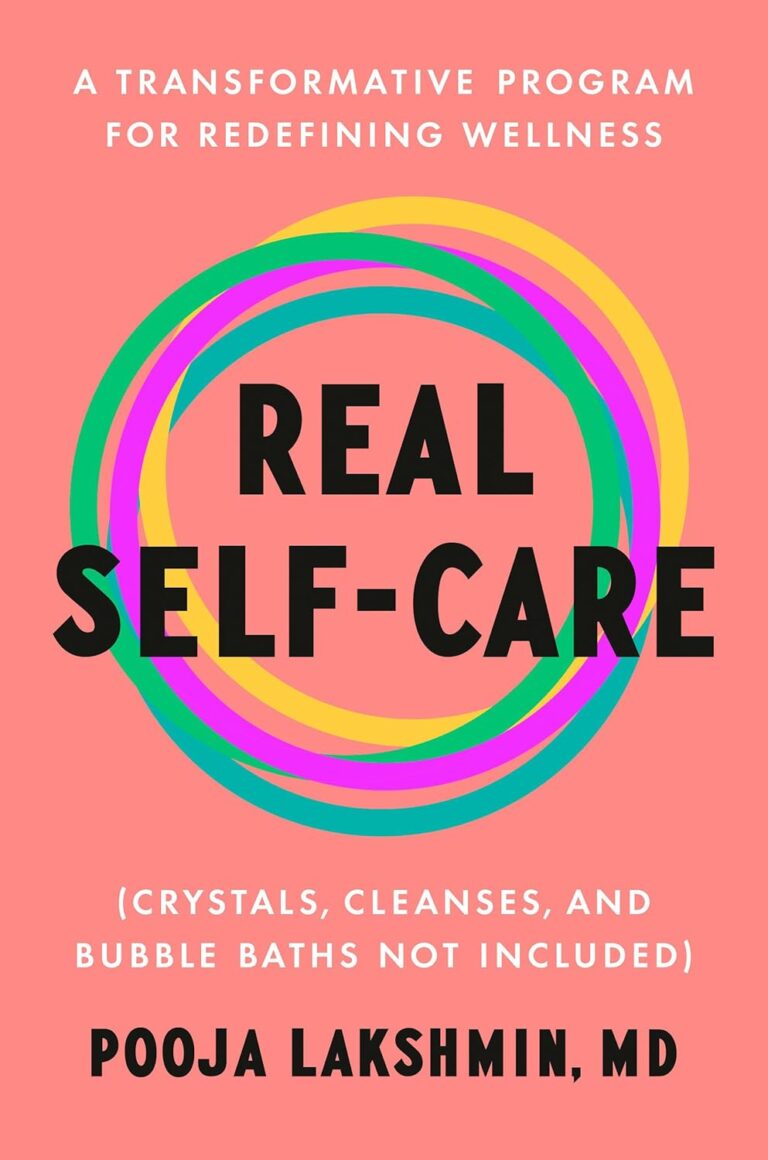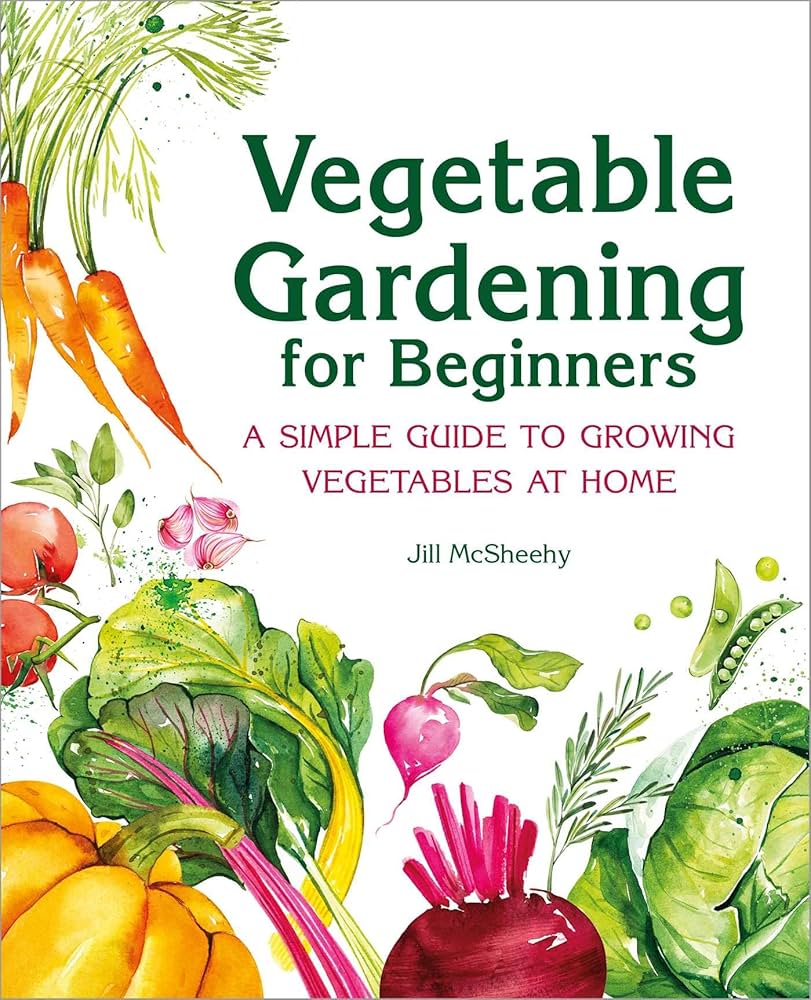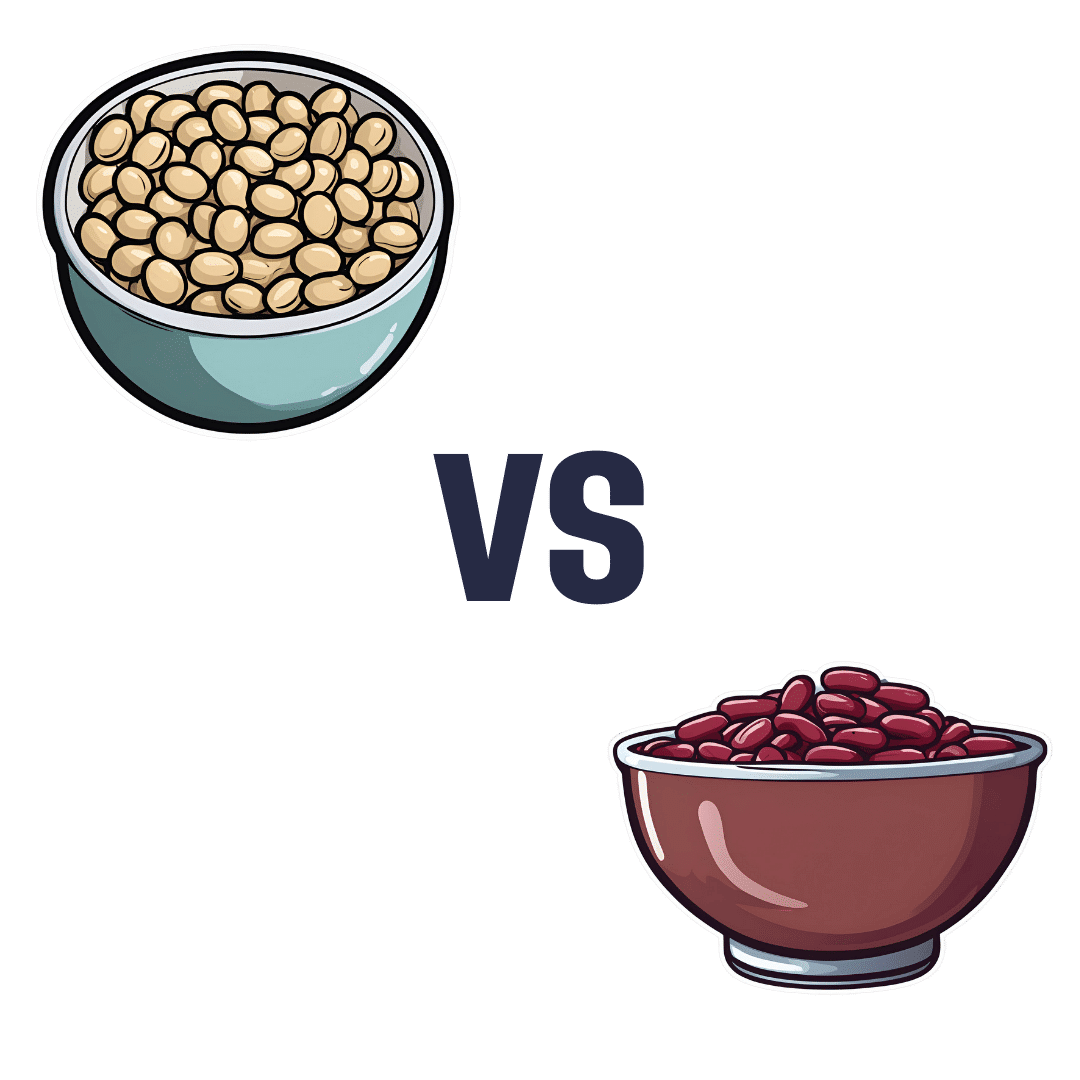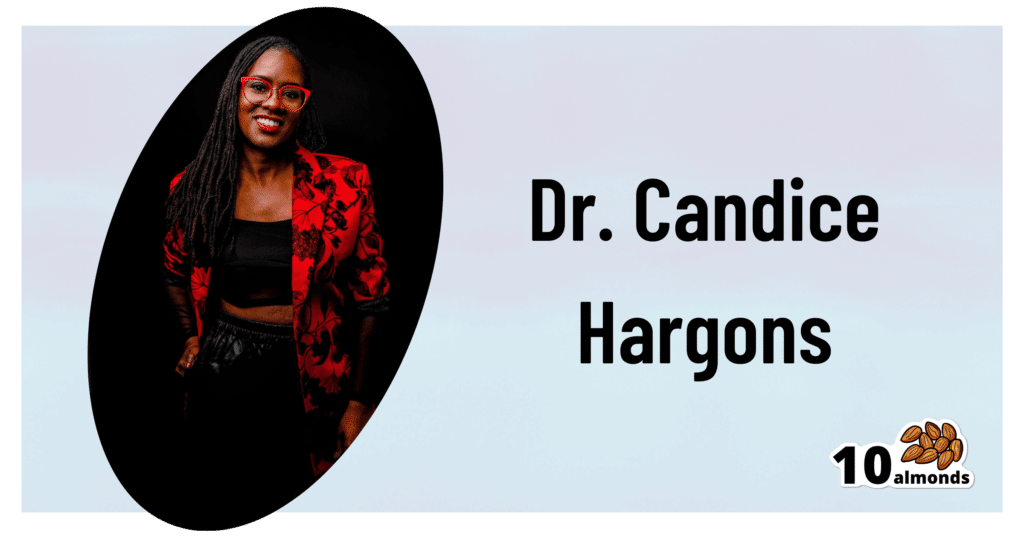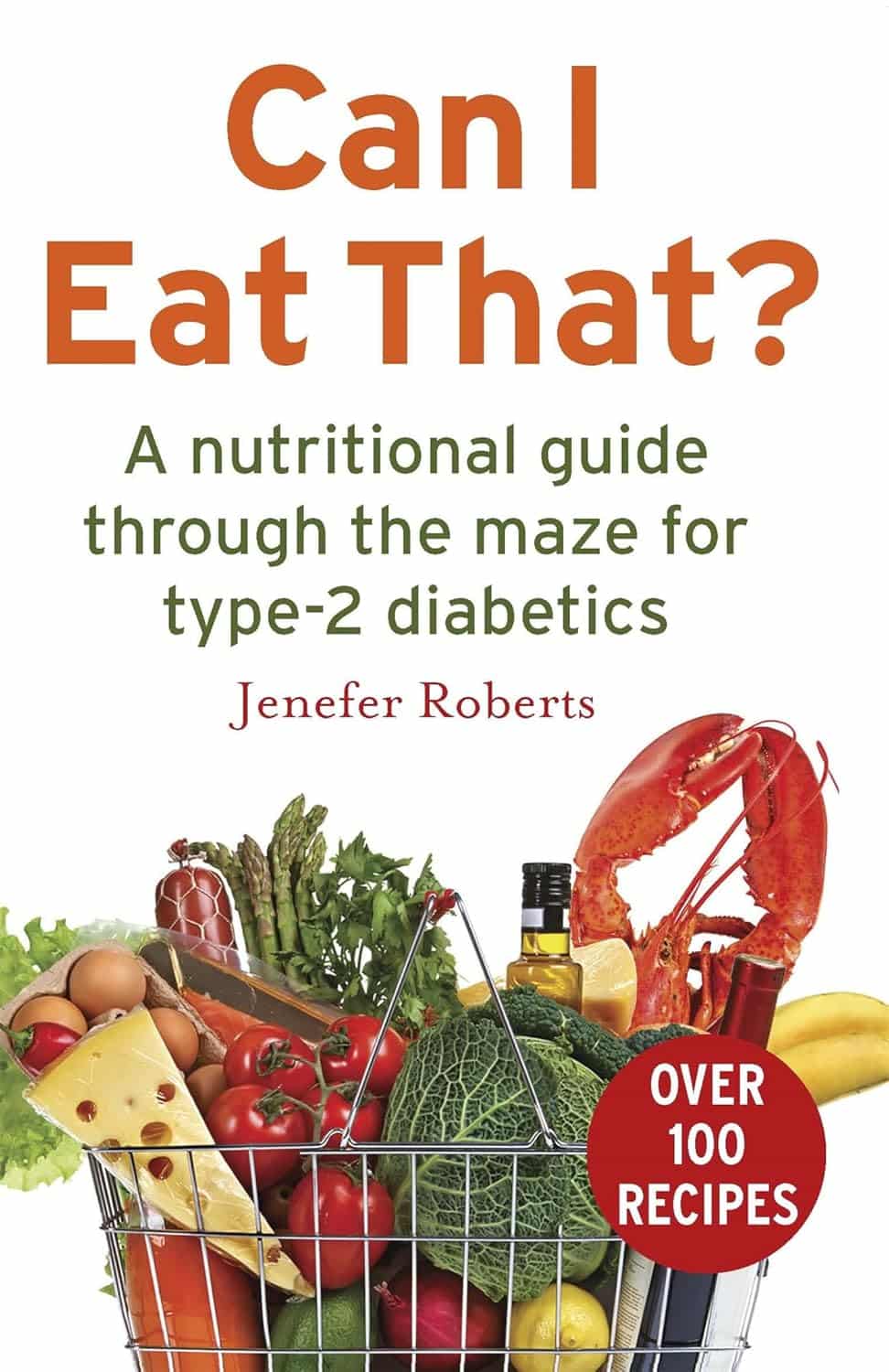
Your Brain Is Always Listening – by Dr. Daniel Amen
10almonds is reader-supported. We may, at no cost to you, receive a portion of sales if you purchase a product through a link in this article.
There are a lot of books on Cognitive Behavioral Therapy (CBT), so what makes this one different?
While many CBT books have a focus (as this one also does) on controlling Automatic Negative Thoughts (ANTs), this one stands out in two ways:
Firstly: Dr. Amen, a medical doctor and psychiatrist, looks not just as the thoughts and feelings side of things… but also the neurological underpinnings. This makes a difference because it gives a much more tangible handle on some of the problems that we might face.
We wouldn’t tell someone with Type 1 Diabetes that they are “just blaming their pancreas” for blood sugar woes. So what’s with the notion of “this person is just blaming their brain”? Why would be harder on ourselves (or others) for having amygdalae that are a little out of whack, or a sluggish prefrontal cortex, or an overactive anterior cingulate gyrus?
So, Dr. Amen’s understanding and insights help us look at how we can give those bits of brain what they need to perk them up or calm them down.
Secondly, rather than picture-perfect easily-solved neat-and-tidy made-up scenarios as illustrations, he uses real (messy, human) case studies.
This means that we get to see how the methods advised work in the case of, for example, a business executive who has a trauma response to public speaking, because at the age of 12 he had to stand in court and argue for why his father should not receive the death penalty.
Bottom line: if these methods can ease situations like that, maybe we can apply them usefully in our own lives, too.
Click here to check out Your Brain Is Always Listening, and take control of yours!
Don’t Forget…
Did you arrive here from our newsletter? Don’t forget to return to the email to continue learning!
Recommended
Learn to Age Gracefully
Join the 98k+ American women taking control of their health & aging with our 100% free (and fun!) daily emails:
-
How Much Can Hypnotherapy Really Do?
10almonds is reader-supported. We may, at no cost to you, receive a portion of sales if you purchase a product through a link in this article.
Sit Back, Relax, And…
In Tuesday’s newsletter, we asked you for your opinions of hypnotherapy, and got the above-depicted, below-described, set of responses:
- About 58% said “It is a good, evidenced-based practice that can help alleviate many conditions”
- Exactly 25% said “It is a scam and sham and/or wishful thinking at best, and should be avoided by all”
- About 13% said “It works only for those who are particularly suggestible—but it does work for them”
- One (1) person said “It is useful only for brain-centric conditions e.g. addictions, anxiety, phobias, etc”
So what does the science say?
Hypnotherapy is all in the patient’s head: True or False?
True! But guess which part of your body controls much of the rest of it.
So while hypnotherapy may be “all in the head”, its effects are not.
Since placebo effect, nocebo effect, and psychosomatic effect in general are well-documented, it’s quite safe to say at the very least that hypnotherapy thus “may be useful”.
Which prompts the question…
Hypnotherapy is just placebo: True or False?
False, probably. At the very least, if it’s placebo, it’s an unusually effective placebo.
And yes, even though testing against placebo is considered a good method of doing randomized controlled trials, some placebos are definitely better than others. If a placebo starts giving results much better than other placebos, is it still a placebo? Possibly a philosophical question whose answer may be rooted in semantics, but happily we do have a more useful answer…
Here’s an interesting paper which: a) begins its abstract with the strong, unequivocal statement “Hypnosis has proven clinical utility”, and b) goes on to examine the changes in neural activity during hypnosis:
Brain Activity and Functional Connectivity Associated with Hypnosis
It works only for the very suggestible: True or False?
False, broadly. As with any medical and/or therapeutic procedure, a patient’s expectations can affect the treatment outcome.
And, especially worthy of note, a patient’s level of engagement will vastly affect it treatment that has patient involvement. So for example, if a doctor prescribes a patient pills, which the patient does not think will work, so the patient takes them intermittently, because they’re slow to get the prescription refilled, etc, then surprise, the pills won’t get as good results (since they’re often not being taken).
How this plays out in hypnotherapy: because hypnotherapy is a guided process, part of its efficacy relies on the patient following instructions. If the hypnotherapist guides the patient’s mind, and internally the patient is just going “nope nope nope, what a lot of rubbish” then of course it will not work, just like if you ask for directions in the street and then ignore them, you won’t get to where you want to be.
For those who didn’t click on the above link by the way, you might want to go back and have a look at it, because it included groups of individuals with “high/low hypnotizability” per several ways of scoring such.
It works only for brain-centric things, e.g. addictions, anxieties, phobias, etc: True or False?
False—but it is better at those. Here for example is the UK’s Royal College of Psychiatrists’ information page, and if you go to “What conditions can hypnotherapy help to treat”, you’ll see two broad categories; the first is almost entirely brain-stuff; the second is more varied, and includes pain relief of various kinds, burn care, cancer treatment side effects, and even menopause symptoms. Finally, warts and other various skin conditions get their own (positive) mention, per “this is possible through the positive effects hypnosis has on the immune system”:
RCPsych | Hypnosis And Hypnotherapy
Wondering how much psychosomatic effect can do?
You might like this previous article; it’s not about hypnotherapy, but it is about the difference the mind can make on physical markers of aging:
Aging, Counterclockwise: When Age Is A Flexible Number
Take care!
Share This Post
-
Vegetable Gardening for Beginners – by Patricia Bohn
10almonds is reader-supported. We may, at no cost to you, receive a portion of sales if you purchase a product through a link in this article.
Gardens are places of relaxation, but what if it could be that and more? We all know that home-grown is best… But how?
Patricia Bohner takes us by the hand with a ground-up approach (so to speak) that assumes no prior gardening ability. Which, for some of us, is critical!
After an initial chapter covering the “why” of vegetable gardening (which most readers will know already, but it’s inspiring), she looks at the most common barriers to vegetable gardening:
- Time
- Space
- Skill issues
- Landlord issues
- Not enough sun
(This reviewer would have liked to have an extra section: “lives in an ancient bog and the soil kills most things”, but that is a little like “space”. I should be using containers, with soil from elsewhere!)
Anyway, after covering how to overcome each of those problems, it’s on to a chapter (of many sections) on “basic basics for beginners”. After this, we now know what our plants need and how we’re going to provide it, and what to do in what order. We’re all set up and ready to go!
Now comes the fancy stuff. We’re talking not just containers, but options of raised beds, vertical gardening, hydroponics, and more. And, importantly, what plants go well in which options—followed up with an extensive array of how-tos for all the most popular edible gardening options.
She finishes up with “not covered elsewhere” gardening tips, which even just alone would make the book a worthwhile read.
In short, if you’ve a desire to grow vegetables but haven’t felt you’ve been able, this book will get you up and running faster than runner beans.
Get your copy of Vegetable Gardening For Beginners from Amazon
Share This Post
-
Soy Beans vs Kidney Beans – Which is Healthier?
10almonds is reader-supported. We may, at no cost to you, receive a portion of sales if you purchase a product through a link in this article.
Our Verdict
When comparing soy beans to kidney beans, we picked the soy.
Why?
In terms of macros, soy has 2x the protein, while kidney beans have nearly 3x the carbs and very slightly more fiber. Ratio-wise, the “very slightly more fiber” does not offset the “nearly 3x the carbs” when it comes to glycemic index (though both are still good, really, but this is a head-to-head so the comparison is relevant), and 2x the protein is also quite a bonus, so this category’s an easy win for soy.
In the category of vitamins, soy beans have more of vitamins A, B2, B6, C, E, K, and choline, while kidney beans have more of vitamins B3, B5, and B9, thus making for a 7:3 win for soy.
When it comes to minerals, soy beans have more calcium, copper, iron, magnesium, manganese, phosphorus, potassium, selenium, and zinc, while kidney beans are not higher in any mineral. Another clear win for soy.
Adding up the three strong wins for soy, makes for an overall easy win for soy. Still, enjoy either or both; diversity is good!
Want to learn more?
You might like to read:
Plant vs Animal Protein: Head to Head
Take care!
Share This Post
Related Posts
-
You can’t reverse the ageing process but these 5 things can help you live longer
10almonds is reader-supported. We may, at no cost to you, receive a portion of sales if you purchase a product through a link in this article.
At this time of year many of us resolve to prioritise our health. So it is no surprise there’s a roaring trade of products purporting to guarantee you live longer, be healthier and look more youthful.
While an estimated 25% of longevity is determined by our genes, the rest is determined by what we do, day to day.
There are no quick fixes or short cuts to living longer and healthier lives, but the science is clear on the key principles. Here are five things you can do to extend your lifespan and improve your health.
1. Eat a predominantly plant-based diet
What you eat has a huge impact on your health. The evidence overwhelmingly shows eating a diet high in plant-based foods is associated with health and longevity.
If you eat more plant-based foods and less meat, processed foods, sugar and salt, you reduce your risk of a range of illnesses that shorten our lives, including heart disease and cancer.
Plant-based foods are rich in nutrients, phytochemicals, antioxidants and fibre. They’re also anti-inflammatory. All of this protects against damage to our cells as we age, which helps prevent disease.
No particular diet is right for everyone but one of the most studied and healthiest is the Mediterranean diet. It’s based on the eating patterns of people who live in countries around the Mediterranean Sea and emphases vegetables, fruits, wholegrains, legumes, nuts and seeds, fish and seafood, and olive oil.
2. Aim for a healthy weight
Another important way you can be healthier is to try and achieve a healthy weight, as obesity increases the risk of a number of health problems that shorten our lives.
Obesity puts strain on all of our body systems and has a whole myriad of physiological effects including causing inflammation and hormonal disturbances. These increase your chances of a number of diseases, including heart disease, stroke, high blood pressure, diabetes and a number of cancers.
In addition to affecting us physically, obesity is also associated with poorer psychological health. It’s linked to depression, low self-esteem and stress.
One of the biggest challenges we face in the developed world is that we live in an environment that promotes obesity. The ubiquitous marketing and the easy availability of high-calorie foods our bodies are hard-wired to crave mean it’s easy to consume too many calories.
3. Exercise regularly
We all know that exercise is good for us – the most common resolution we make this time of year is to do more exercise and to get fitter. Regular exercise protects against chronic illness, lowers your stress and improves your mental health.
While one of the ways exercising helps you is by supporting you to control your weight and lowering your body fat levels, the effects are broader and include improving your glucose (blood sugar) use, lowering your blood pressure, reducing inflammation and improving blood flow and heart function.
While it’s easy to get caught up in all of the hype about different exercise strategies, the evidence suggests that any way you can include physical activity in your day has health benefits. You don’t have to run marathons or go to the gym for hours every day. Build movement into your day in any way that you can and do things that you enjoy.
4. Don’t smoke
If you want to be healthier and live longer then don’t smoke or vape.
Smoking cigarettes affects almost every organ in the body and is associated with both a shorter and lower quality of life. There is no safe level of smoking – every cigarette increases your chances of developing a range of cancers, heart disease and diabetes.
Even if you have been smoking for years, by giving up smoking at any age you can experience health benefits almost immediately, and you can reverse many of the harmful effects of smoking.
If you’re thinking of switching to vapes as a healthy long term option, think again. The long term health effects of vaping are not fully understood and they come with their own health risks.
5. Prioritise social connection
When we talk about living healthier and longer, we tend to focus on what we do to our physical bodies. But one of the most important discoveries over the past decade has been the recognition of the importance of spiritual and psychological health.
People who are lonely and socially isolated have a much higher risk of dying early and are more likely to suffer from heart disease, stroke, dementia as well as anxiety and depression.
Although we don’t fully understand the mechanisms, it’s likely due to both behavioural and biological factors. While people who are more socially connected are more likely to engage in healthy behaviours, there also seems to be a more direct physiological effect of loneliness on the body.
So if you want to be healthier and live longer, build and maintain your connections to others.
Hassan Vally, Associate Professor, Epidemiology, Deakin University
This article is republished from The Conversation under a Creative Commons license. Read the original article.
Don’t Forget…
Did you arrive here from our newsletter? Don’t forget to return to the email to continue learning!
Learn to Age Gracefully
Join the 98k+ American women taking control of their health & aging with our 100% free (and fun!) daily emails:
-
Better Sex = Longer Life (Here’s How)
10almonds is reader-supported. We may, at no cost to you, receive a portion of sales if you purchase a product through a link in this article.
This is Dr. Candice Hargons. She’s a professor of psychology, and has served on the Kentucky Psychological Association Board, the Society of Counseling Psychology Executive Board, and the American Psychological Association (APA)’s Council of Representatives. She also served on the APA Board of Directors, after receiving the APA’s Presidential Citation award for her research and leadership.
She leads the Study of Mental And Sexual Health Equity in Relationships (SMASHER Lab), with a predominant focus on promoting good sex, sexual wellness, and liberation among couples and communities.
In her own words:
❝Sex is one of the most common and normal human behaviors, and yet it remains relatively taboo as a topic. Many people worry about being judged, either for being perceived as too sexual or not sexual enough, and a major focus of my work is to normalize talking and learning about sex to improve sexual functioning across the adult lifespan.❞
~ Dr. Candice Hargons
So, let’s do that!
What does good sex do for health?
We’ve written previously about the health aspects of orgasms specifically:
“Early To Bed…” (Mythbusting Orgasms) ← including resources pertaining to anorgasmia, the inability to orgasm
…but orgasms are not the be-all-and-end-all of sex; see for example:
A Urologist Explains Edging: What, Why, & Is It Safe? ← when the journey is genuinely more of a focus than the destination
And certainly, good sex is simply a very good way to relax and de-stress, which is important, given how important stress management is to general health in very many ways (affecting things ranging from inflammation to heart health and more).
Plus, while the level of athleticism deployed may vary, sex is a physical activity, and physical activity is, as a rule, good.
There’s more to it than that though! It also can help us bind closely to our loved ones, in a positive way, which—critically—has a very positive impact on healthy longevity:
Only One Kind Of Relationship Promotes Longevity This Much! ← this is about the seriousness of the relationship, not the sex, but for most people, a strong and fulfilling relationship will include having good sex.
The scientific relationship between sex and longevity also got a whole chapter in this excellent book that we reviewed all so recently:
Age Proof: The New Science of Living a Longer and Healthier Life – by Dr. Rose Anne Kenny
What makes it “good”?
Dr. Hargons considers (and her opinion is backed by extensive research in the SMASHER Lab, if you’ll pardon the mental image that that might conjure) that first and foremost… It has to feel good to all parties involved.
In contrast, oftentimes, one partner’s pleasure is prioritized over another’s, and that becomes a problem.*
*assuming that’s not part of an established kink dynamic with enthusiastic affirmative consent, such as if the partner whose pleasure is being deprioritized is enthusiastically requesting to be denied orgasms, for example. Yes, that’s a real kink and even a popular one, but it’s not what’s happening in most sexually uneven relationships.
This kind of unplanned disparity often goes undiscussed by the couple in question—especially in heterosexual couples if the man is getting what he wants/needs and the woman isn’t, because there’s a rather lop-sided societal expectation in that regard. And even a loving, well-intentioned man can simply not know how to do better and be afraid to ask. And for that matter, it’s also entirely possible for his partner to not know either.
Dr. Hargons lists the four main keys as:
- Communication
- Intimacy
- Passion
- Pleasure
And communication indeed comes first, so to speak. For example, she advises:
❝Begin by identifying what you like and don’t like sexually. An easy way to do this is to create a “Yes, No, Maybe So” list. You can use paper or a Notes app on your phone.
Create three columns: one for Yes, No, and Maybe So sections. In the Yes section, write all the things you enjoy and want to keep doing sexually, as well as things you have not tried yet that you want to try. In the No section, write all the things you don’t enjoy and do not want to do anymore. It can also include things you haven’t tried that you’re uninterested in trying. Finally, in your Maybe So list, write all the things you’re curious about and/or are only willing to try in specific settings or circumstances.
You can share this list with your partner, but even if you are not ready to do that, you will already have enhanced your sexual self-awareness and be better positioned to talk with your sexual partner about what you want.❞
This represents an important shift from “whatever” to taking an active role in your sex life at your own pace.
And from there, it’s just a matter of exploring, together, and learning as you go. Could anything be more exciting than that?
“What if I’m single?”
We talked about this a little previously, more relationally than sexually specifically, though:
Now, a single person can of course still have an active sex life if you so choose, in which case, the above advice still applies, just, it’ll be conversations with your partner-of-the-moment rather than with a life partner. And that’s important too! Just because something is casual, doesn’t mean it need not be entered into mindfully and with a sense of what you want out of it, and communicating that effectively (while encouraging the same from others, and of course actually listening to, and caring about, what they say too).
And if you are, perchance, single and decided on a life of celibacy now, you can and (if you are sexual at all) should still figure out what you like and don’t like sexually, because even if it’s going to be you-on-you action, it will be good for you to love yourself enough to do it right.
Seriously, treat yourself at least as well as you would any other lover.
On which note, corded wand-style vibrators like the famous “Magic Wand” kind are much more powerful than the battery kind, and you will feel the difference, in a good way.
And if you really want to invest in your sexual wellness and you like the idea, saddle-style vibrators like this one will rock your socks off in ways handheld vibrators couldn’t dream of.
Want to know more?
You might want to check out Dr. Hargons’ book:
Good Sex: Stories, Science, and Strategies for Sexual Liberation – by Dr. Candice Hargons ← this covers so many important areas, more than we have room to here. Just check out the table of contents, and you’ll see what we mean.
…which we haven’t reviewed yet, but here are some excellent related books that we have:
- Come Together: The Science (and Art) of Creating Lasting Sexual Connections – by Dr. Emily Nagoski
- Better Sex Through Mindfulness: How Women Can Cultivate Desire – by Dr. Lori Brotto
Enjoy!
Don’t Forget…
Did you arrive here from our newsletter? Don’t forget to return to the email to continue learning!
Learn to Age Gracefully
Join the 98k+ American women taking control of their health & aging with our 100% free (and fun!) daily emails:
-
Can I Eat That? – by Jenefer Roberts
10almonds is reader-supported. We may, at no cost to you, receive a portion of sales if you purchase a product through a link in this article.
The answer to the question in the title is: you can eat pretty much anything, if you’re prepared for the consequences!
This book looks to give you the information to make your own decisions in that regard. There’s a large section on the science of glucose metabolism in the context of food (other aspects of glucose metabolism aren’t covered), so you will not simply be told “raw carrots are good; mashed potatoes are bad”, you’ll understand many factors that affect it, e.g:
- Macronutrient profiles of food and resultant base glycemic indices
- How the glycemic index changes if you cut something, crush it, mash it, juice it, etc
- How the glycemic index changes if you chill something, heat it, fry it, boil it, etc
- The many “this food works differently in the presence of this other food” factors
- How your relative level of insulin resistance affects things itself
…and much more.
The style is simple and explanatory, without deep science, but with good science and comprehensive advice.
There are also the promised recipes; they’re in an appendix at the back and aren’t the main meat of the book, though.
Bottom line: if you’ve ever found it confusing working out what works how in the mysterious world of diabetes nutrition, this book is a top tier demystifier.
Click here to check out Can I Eat That?, and gain confidence in your food choices!
Don’t Forget…
Did you arrive here from our newsletter? Don’t forget to return to the email to continue learning!
Learn to Age Gracefully
Join the 98k+ American women taking control of their health & aging with our 100% free (and fun!) daily emails:

